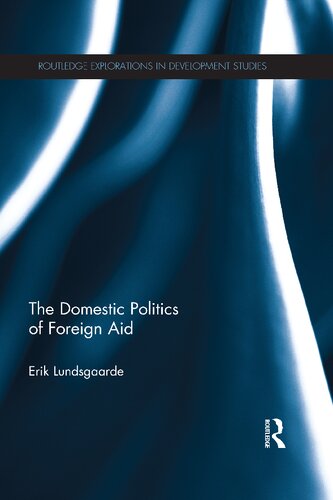

Most ebook files are in PDF format, so you can easily read them using various software such as Foxit Reader or directly on the Google Chrome browser.
Some ebook files are released by publishers in other formats such as .awz, .mobi, .epub, .fb2, etc. You may need to install specific software to read these formats on mobile/PC, such as Calibre.
Please read the tutorial at this link: https://ebookbell.com/faq
We offer FREE conversion to the popular formats you request; however, this may take some time. Therefore, right after payment, please email us, and we will try to provide the service as quickly as possible.
For some exceptional file formats or broken links (if any), please refrain from opening any disputes. Instead, email us first, and we will try to assist within a maximum of 6 hours.
EbookBell Team

4.0
26 reviewsIn spite of shared rhetorical commitments to tackling poverty worldwide, donors have varied considerably in their use of aid as an instrument for global poverty reduction. This book explains varied donor priorities by examining how societal actors, governmental actors, and the institutions that regulate their interactions influence development policy choices.
The Domestic Politics of Foreign Aid challenges explanations for donor generosity that identify humanitarian values, partisan politics, and welfare state institutions as key determinants of aid-giving patterns. It explains how the preferences of diverse sets of actors are amalgamated in the domestic political arena to shape national preferences for international redistribution. Drawing on interview research conducted with a variety of stakeholders in four donor countries (Denmark, France, Switzerland and the United States) and an extensive review of primary and secondary sources on aid politics in the countries studied, the book offers both a static overview of the characteristics of aid policymaking systems and a historical treatment of policymaking dynamics over a 25-year period (1980-2005).
Applying a common theoretical framework to the four case studies and using development NGO advocacy as a starting point for examining the politics of aid, this book provides a synthesis of several strands of theoretical work dealing with interest group politics and political institutions to inform the analysis of the societal and governmental determinants of aid choices.